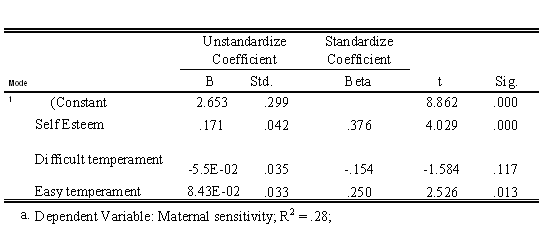Exam 11: Multiple Regression
Exam 1: Introduction61 Questions
Exam 2: Basic Concepts58 Questions
Exam 3: Displaying Data57 Questions
Exam 4: Measures of Central Tendency55 Questions
Exam 5: Measures of Variability62 Questions
Exam 6: The Normal Distribution59 Questions
Exam 7: Basic Concepts of Probability61 Questions
Exam 8: Sampling Distributions and Hypothesis Testing69 Questions
Exam 9: Correlation71 Questions
Exam 10: Regression66 Questions
Exam 11: Multiple Regression58 Questions
Exam 12: Hypothesis Tests Applied to Means: One Sample67 Questions
Exam 13: Hypothesis Tests Applied to Means: Two Related Samples59 Questions
Exam 14: Hypothesis Tests Applied to Means: Two Independent Samples63 Questions
Exam 15: Power70 Questions
Exam 16: One-Way Analysis of Variance85 Questions
Exam 17: Factorial Analysis of Variance74 Questions
Exam 18: Repeated-Measures Analysis of Variance62 Questions
Exam 19: Chi-Square56 Questions
Exam 20: Nonparametric and Resampling Statistical Tests45 Questions
Exam 21: Meta-Analysis57 Questions
Select questions type
Individual predictors cannot be individually associated with the criterion variable if R is not different from 0 (i.e., if the entire model is not significant).
(True/False)
4.8/5  (34)
(34)
Any association that was significant as a simple correlation will be significant in a multiple regression equation predicting the same criterion variable.
(True/False)
4.7/5  (40)
(40)
Are the set of predictors significantly associated with maternal sensitivity?
(Short Answer)
4.9/5  (40)
(40)
Assume that we generated a prediction just by adding together the number of stressful events you report experiencing over the last month, the number of close friends you have, and your score on a measure assessing how much control you feel you have over events in your life (i.e., prediction = stress + friends + control). The regression coefficient for stressful events would be
(Multiple Choice)
4.8/5  (34)
(34)
If one independent variable has a larger coefficient than another, this means
(Multiple Choice)
4.9/5  (33)
(33)
The example in Chapter 11 of predicting weight from height and sex showed that
(Multiple Choice)
4.8/5  (35)
(35)
If our regression equation is Ŷ = 0.75 × age 0.50 × experience - 0.10 × grade point average - 2.0, and if our first subject had scores of 16, 4, and 3.0 on those three variables, respectively, then that subject's predicted score would be
(Multiple Choice)
4.9/5  (30)
(30)
Multiple regression analysis yielded the following regression equation:
Predicted Happiness = .36 × friends - .13 × s tress + 1.23
Which of the following is true?
(Multiple Choice)
4.9/5  (27)
(27)
The multiple correlation of several variables with a dependent variable is
(Multiple Choice)
4.8/5  (32)
(32)
Many of the procedures for finding an optimal regression equation (whatever that means) are known as
(Multiple Choice)
4.7/5  (38)
(38)
Suppose that in the previous question another subject had a predicted score of 10.3, and actually obtained a score of 12.4. For this subject the residual score would be
(Multiple Choice)
4.8/5  (21)
(21)
If we find all of the residuals when predicting our obtained values of Y from the regression equation, the sum of squared residuals would be expected to be _______ the sum of the squared residuals for a new set of data.
(Multiple Choice)
4.8/5  (33)
(33)
The text generally recommended against formal procedures for finding an optimal regression procedure because
(Multiple Choice)
4.7/5  (35)
(35)
The following regression equation was found for a sample of college students. predicted happiness = 32.8 GPA + 17.3 × pocket money + 7.4
Which of the following can be concluded?
(Multiple Choice)
4.8/5  (42)
(42)
Write a sentence explaining the analysis presented in the following table (i.e., what are the predictor variables, what is the criterion variable).

(Essay)
4.9/5  (30)
(30)
The Analysis of Variance section in computer results for multiple regression
(Multiple Choice)
4.8/5  (37)
(37)
If two variables are each correlated significantly with the dependent variable, then the multiple correlation will be
(Multiple Choice)
4.8/5  (24)
(24)
Showing 21 - 40 of 58
Filters
- Essay(0)
- Multiple Choice(0)
- Short Answer(0)
- True False(0)
- Matching(0)